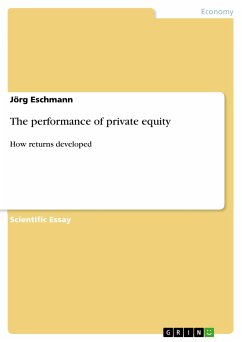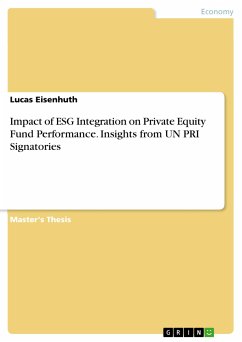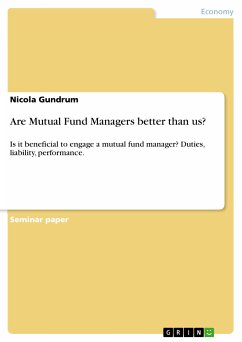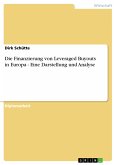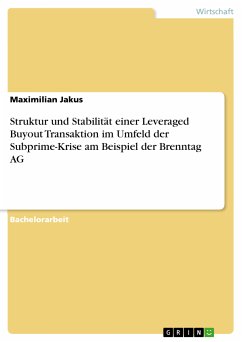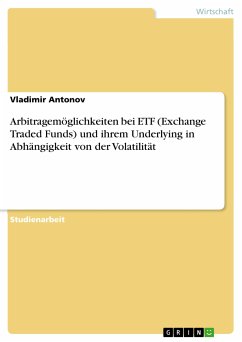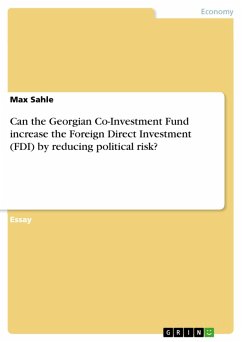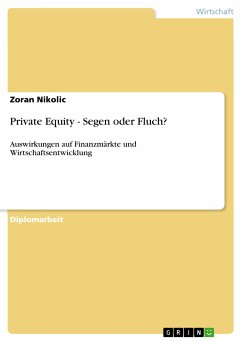Scientific Essay from the year 2010 in the subject Business economics - Investment and Finance, , course: -, language: English, abstract: The European private equity market had achieved a considerable volume until 2008. Reasons for increasing the volume can be seen in the favourable economic development, low inflation and strong competitive pressure on the part of financial intermediaries. These led to falling swap spreads on the financial markets and increased the investors’ risk tolerance. Then, in September 2009, the investment business was depressed. The dreariness in the business with private equity participations or buy-outs could already clearly be read in the half-year figures on the market. The amounts invested also declined by just over one third. Due to a lack of awareness, private equity is still frequently associated with high risk. Investing in an individual company can sometimes be fraught with risk. Since private equity funds work in a highly specialised way and concentrate on specific sectors or industries, the investment in a single private equity fund can also be risky. The risk of default of an umbrella fund with investments in approx. 20 or more target funds, however, is very low due to broad diversification. While additional costs are incurred for the investor for the services provided by the umbrella fund, the expected return is still clearly double-digit, even after subtracting these costs. The average annual return on private equity is regularly 3 to 5% above the average annual yields of stock investments. Recent studies provide evidence that companies that were sold by private equity investors achieved an annual growth in value of 24% to 29% - comparable listed companies managed added value of only nine percent. Private equity investments are investments in not listed companies with a high risk of default, low fungibility and transparency. A higher return on the investments is inevitably necessary – and feasible.
Bitte wählen Sie Ihr Anliegen aus.
Rechnungen
Retourenschein anfordern
Bestellstatus
Storno

